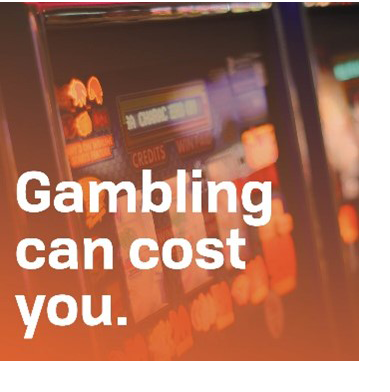
Published Oct. 27, 2023
For thousands of Iowans, gambling disorder can lead to financial, emotional and social physical harm. Yet, many cases go undetected and untreated.
During Problem Gambling Awareness Month, we encourage you to reflect on your gambling habits and see if you would benefit from connecting with support.
While many people are able to gamble periodically without negative consequences, about 1 in 10 adult Iowans are at-risk gamblers, having experienced one or more problem gambling symptoms. Problem gambling is any gambling behavior that disrupts your life, including being preoccupied with gambling, spending more and more time and money gambling, losing relationships over gambling and more.
Signs of a gambling problem:
- Being preoccupied with gambling, such as constantly planning gambling activities and how to get more gambling money
- Needing to gamble with increasing amounts of money to get the same thrill
- Trying to control, cut back or stop gambling, without success
- Feeling restless or irritable when you try to cut down on gambling
- Gambling to escape problems or relieve feelings of helplessness, guilt, anxiety or depression
- Trying to get back lost money by gambling more (chasing losses)
- Lying to family members or others to hide the extent of your gambling
- Risking or losing important relationships, a job, or school or work opportunities because of gambling
- Asking others to bail you out of financial trouble because you gambled money away
Source: Compulsive Gambling, Mayo Clinic.
Gambling, including casinos and sports betting, can stimulate the brain’s reward system like how drugs or alcohol can. Most casual gamblers stop playing when they lose or set a limit on how much they are willing to lose. But problem gambling can compel people to continue to keep playing, even when gambling becomes destructive.
If you are struggling with your gambling habits, Your Life Iowa can help. Our trained, non-judgmental counselors can support you during crisis situations, help you self-exclude from casinos, and help you connect with on-going treatment options.
